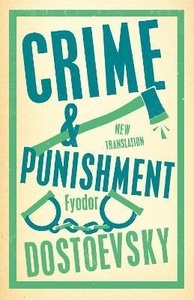Crime and Punishment

Editorial Alma Books Ltd
Fecha de edición junio 2022 · Edición nº 1
Idioma inglés
EAN 9781847498830
720 páginas
Libro
encuadernado en tapa blanda
Dimensiones 129 mm x 198 mm
Resumen del libro
Poverty-stricken and cut off from society, former law student Rodion Romanovich Raskolnikov leads a desolate life in a dreary little room in St Petersburg. Having abandoned all hopes of sustaining himself through work, he now obsesses over the idea of changing his fortunes through an extreme act of violence: the killing of an elderly pawnbroker. His mind baulks at the horror of his plan, but when he hears that his sister Dunya is about to agree to a loveless marriage in order to escape the advances of her employer, his disgust for the world becomes unbounded, and his feelings of rebellion and revenge push him closer and closer to the edge of the precipice.
A masterpiece of psychological insight, Dostoevsky's 1866 novel features some of its author's most memorable characters - from the temperamental protagonist Raskolnikov to the amoral sensualist Svidrigailov and the immoral lawyer Luzhin. Presented here in a sparkling new translation by Roger Cockerell, Crime and Punishment is a towering work in Russian nineteenth-century fiction and a landmark of world literature.








